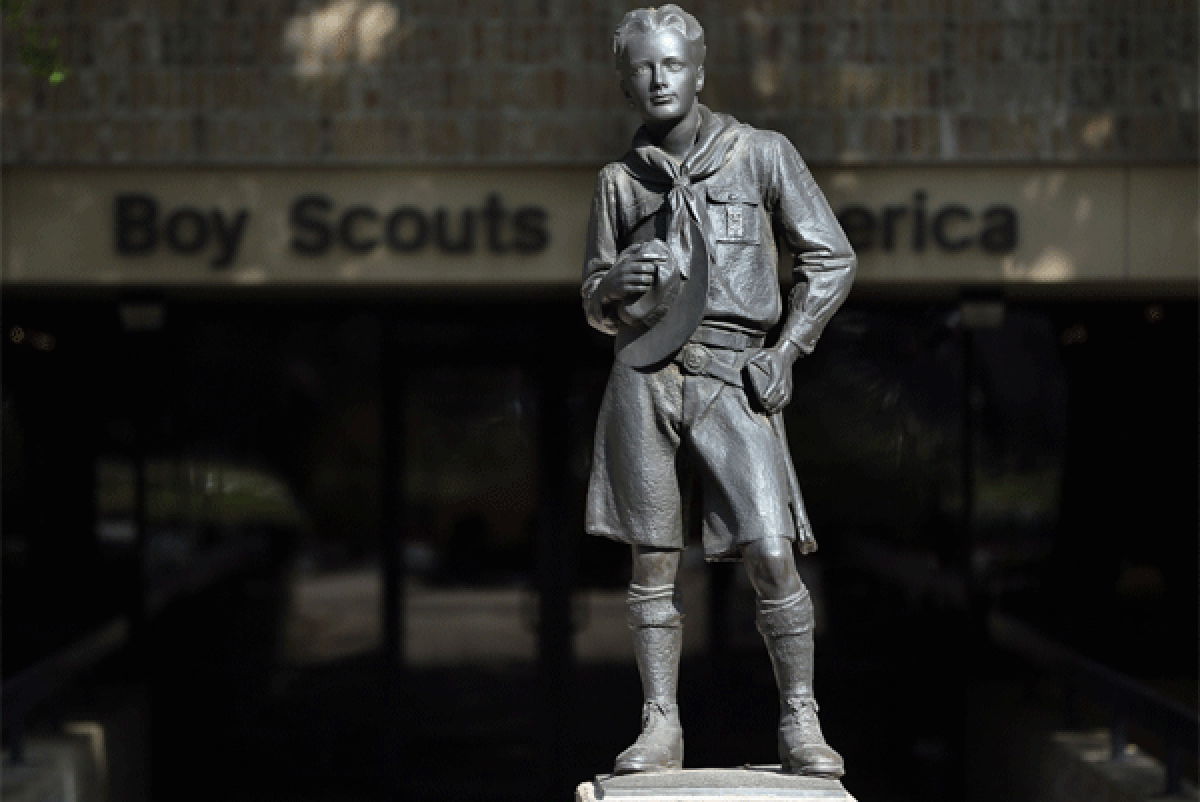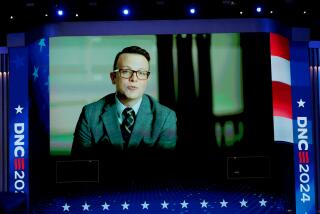Scouting’s misstep

- Share via
At age 19, when I was an assistant scoutmaster, I was expelled from the Boy Scouts of America for being gay. The very group that had taught me the value of self-respect since I was 8 years old now told me that there was something fundamentally wrong with who I was, and am. Confronting institutional discrimination for the first time, I was overwhelmed with sadness, grief and anger.
On Thursday, under the guise of progress, the Boy Scouts’ National Council appears poised to endorse a compromise that will allow gay young people as Scouts but would continue to bar gay adults from any participation in Scouting. But this is not a step forward at all. It perpetuates the same toxic message among the 2.7 million Scouts that I received 23 years go: being gay makes you unworthy of full participation in Scouting. Indeed, an 18-year-old teenager may, overnight, go from celebrated Eagle Scout to immoral persona non grata.
After my expulsion in 1990, the New Jersey Supreme Court ruled that the Boy Scouts of America’s exclusion of gays was a violation of the state’s public accommodation law. The BSA appealed to the U.S. Supreme Court, pleading that homosexuality was incompatible with its values and investing untold millions in the battle. In 2000, a 5-4 ruling from the court gave the BSA a freedom-of-association shield to protect its distorted view of “morally straight.”
Thirteen years later, the United States has seen a dramatic shift toward acceptance of equal rights for gays, something even the Scouts’ own members recognize. In the most recent biannual “Voice of the Scout” national survey, a majority of parents under age 50 opposed the Scouts’ current anti-gay policies. Youth members between the ages of 16 and 18 also agreed overwhelmingly, stating the “current policy does not represent a core value of Scouting.”
So whose values have the Boy Scouts of America been representing?
Only adults in the Scouting community, such as paid BSA executives, supported continuing to exclude gays from their ranks by 61% to 34%. Are these the voices that should be held up as the future of Scouting? Or are they the kind of obstinate, outdated autocrats to whom Thomas Jefferson referred when he said, “We might as well require a man to wear still the coat which fitted him when a boy, as civilized society to remain ever under the regimen of their barbarous ancestors.”
In fact, the BSA has been feeling the pinch of being out of step with America. Nationally, youth membership has dropped by one-fourth in the 13 years since the Supreme Court decision in my case. A report from the Scouts’ Western region predicted that “if there is no change, short-term losses will be minimal but long-term losses to the BSA would be dramatic.” Scouting has also faced monetary losses: 82 of the Fortune 100 companies have advocated for a policy change, and many have suspended their financial support until the BSA ends its discriminatory ways.
In response, BSA leadership cobbled together this convoluted new policy that sends a redundant and damning message to young people: Homosexuality is a youthful indiscretion that you must disavow as an adult to continue to be accepted. It further implies that gay adults are not fit to be good role models, and it perpetuates the tired stereotype that gay men will somehow harm or prey on children.
Yet such nonsense was refuted by the BSA’s own experts in the field of youth protection, who included in a national report that “more than two decades of research has failed to find any significant differences in the adjustment or development of children or adolescents raised by same-sex couples as compared to those children raised by heterosexual couples.”
Many well-intentioned people characterize this new policy as progress. But what the leadership of the Boy Scouts has proposed is a destructive policy that sends a damaging message, particularly to young adults searching for their place in the world. And it cannot hold: after Brown vs. Board of Education, integrated schools graduated children into a society that remained segregated, and further action was needed in the form of the Civil Rights Act of 1964.
We must learn from that history. Equality should not be doled out in fits and starts. Fair-minded Americans must not accept this half-hearted measure as a sign that the Boy Scouts is headed in the right direction and leave it at that. Just as one would not join a segregated country club to advocate for change, parents and corporate sponsors must keep the pressure up to fully end the intolerance the BSA has grafted onto the Scout Oath and Law.
A recent ABC/Washington Post national poll demonstrated where the hearts and minds of Americans are: 56% said that this policy of continuing to exclude gay adults is wrong. As a nation we have come too far on the issue of gay equality to celebrate a Scouting policy that provides anything less than full equality, let alone one that undermines the integrity and self-respect of our young people.
To reclaim the goodwill it has lost, the Boy Scouts of America must accept children for who they are and who they will become. How can it expect anyone to join or support an organization that will ultimately betray them?
James Dale was the respondent in U.S. Supreme Court case Boy Scouts of America vs. Dale. He can be contacted at James_Dale@icloud.com
More to Read
A cure for the common opinion
Get thought-provoking perspectives with our weekly newsletter.
You may occasionally receive promotional content from the Los Angeles Times.






